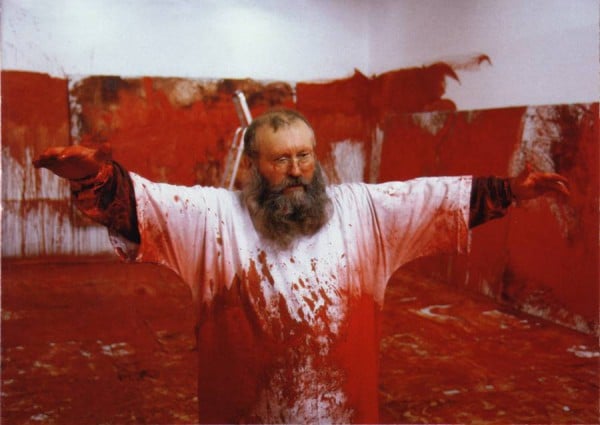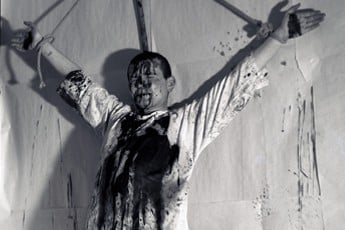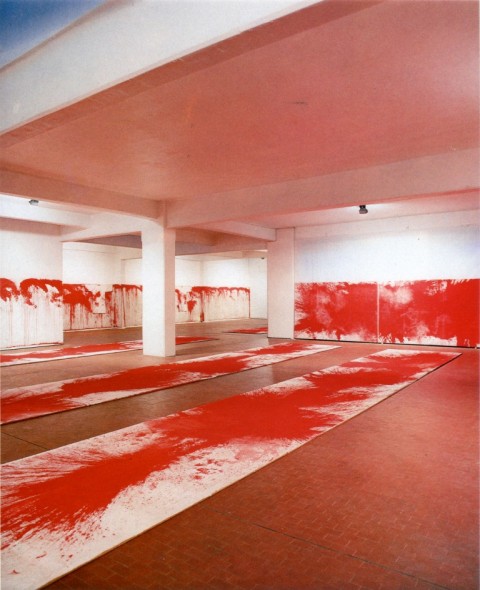Art & Exhibitions
Will Italy Back Down on Hermann Nitsch Show in Palermo?
Animal rights activists have launched a petition to stop it.

Photo: flavorwire.com
Animal rights activists have launched a petition to stop it.

Hili Perlson

Half a century after the initial transgressions of Viennese Actionism, Hermann Nitsch is still able to shock audiences with the mere thought of his blood drenched, carcass-filled art actions.
Italian animal rights activists have launched an online petition to stop a Nitsch performance, slated to kick off in Palermo on July 10, and continue throughout the summer until September 20.
As of today, some 43,120 signatures have been added to the petition, via the online platform change.org.
“The Orgies Mysteries Theatre” which the artist first conceived in 1957, last showed in Italy in 2010. The exhibition, hosted by the Cantieri Culturali alla Zisa – Zona Arti Contemporanee (ZAC), a former industrial space in Palermo, will include a multi-floor “pharmacy” packed with “fetish objects,” 40 paintings (with a massive work on the floor), 40 photographs, and videos of the artist performing.
The protesters also called on the Mayor of Palermo, Leoluca Orlando, urging him to ban the exhibition which would take place in premises belonging to the municipality.
In their argument against the art happening, animal rights activists referred to the Universal Declaration of Animal Rights adopted by UNESCO in 1987, which states that no animal should be exploited for the amusement of humans. Even dead animals should be treated with respect, according to the declaration.

Hermann Nitsch, 1st action, Vienna (1963)
Photo: Nitsch Foundation
If the protests prove successful, this would be the second time in less than six months that a show by Nitsch gets called off. Earlier this year, the Museo Jumex in Mexico City cancelled an exhibition of artwork by Nitsch. Not offering an official reason, it was widely accepted as a reaction to protests by animal rights activists.
The cancellation then took on different dimensions when, following the incident, curator Magali Ariola was fired, and the museum’s director Patrick Charpenel resigned. The scandal also involved some international dimplomacy, when Austrian ambassador to Mexico, Dr. Eva Hager, offered her support of Nitsch’s work in a statement to the press.
“Nitsch’s oeuvre critiques precisely the industrial use of animals for public consumption, as well as the attitude of a society that considers animal products as disposable,” she wrote.

Hermann Nitsch, Installation view 1984
Photo: via artribune.com
In May, the Museo Zac ai Cantieri Culturali alla Zisa in Palermo announced that it would host the show this summer.
“Everybody who knows me knows that I am an animal protector,” Nitsch wrote in an email to artnet News in February, in reply to the cancelled Jumex show. “From my point of view factory farming is the biggest crime in our society.” Nitsch also expressed his sadness and hurt over the incident.